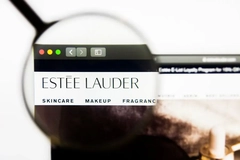Clean beauty from waste: UpCircle Beauty exec urges “brands need to take the next step”
18 Feb 2022 --- While the by-product beauty revolution is still in its early stages, consumers are paying close attention to brands and what they stand for, prompting companies to look beyond sourcing natural ingredients to support causes. Anna Brightman, the co-founder of UpCircle Beauty, speaks to PersonalCareInsights on what this means for industry.
UpCircle Beauty is a UK-based producer of skin and body care products made from upcycled ingredients.
“Once we stop seeing things as waste but rather as resources, the status quo will change quickly,” says Brightman.
A gold standard for beauty brands has been to deliver great products from natural ingredients, but Brightman adds that brands are now brands expected to go much further and “stand for something beyond the ingredients they use.”

“Beauty brands must prove that there is a reason for their existence, one that contributes in some way positively to the environment, to society, or to supporting individual expression. Just having natural or vegan ingredients has become an entry-level requirement for consumers. Brands need to take the next step.”
Consumer demand shapes trend
Consumers want to support authentic brands committed to the environment, whether that’s through sustainable ingredient sourcing, innovative packaging solutions, or natural and organic products.
“Consumers are increasingly looking for transparency. They question if brands are authentic or simply paying lip service – ‘greenwashing,’” says Brightman.
Aside from the waste-saving benefits of utilizing by-products, the circular economy forms links between industries. UpCircle Beauty’s ingredients come from a variety of sources, including the food and drinks industry, the wood industry and the floristry industry. The range repurposes by-product ingredients from varied industries, including the argan, tea, juice, date, olive and wood industries.
The range repurposes by-product ingredients from varied industries, including the argan, tea, juice, date, olive and wood industries.
“There is not only consumer demand but also demand from businesses for ways to minimize their waste outputs. Every day we’re contacted by coffee shops all over the country asking if we can collect their grounds. Over time our collection area will expand, but there’s no shortage of these coffee grounds.”
The company uses these coffee grounds from the coffee shops to produce a range of products: a Coffee Body Scrub with lemongrass, a Winter Skincare Essentials range (face moisturizer, face serum, caffeine eye cream and nourishing body cream) and an Organic Face Serum with coffee oil.
More beneficial for personal care formulations?
According to Brightman, upcycled ingredients are more beneficial for NPD formulations.
“There is no point in us going to all of this effort to rescue ingredients if they have no benefit for the skin. The efficacy of the products has to come first. For example, research has shown that the level of antioxidants in coffee increases as it’s brewed.”
Antioxidants fight free radicals, which contributes to the signs of skin aging.
“It can be argued that the coffee brewing process makes the coffee even better for your skin. The performance of the ingredients within our skincare formulations is essential. No amount of pretty packaging or clever marketing can make up for a product that doesn’t do what it’s supposed to do,” Brightman explains.
Providing products from upcycled ingredients demonstrates that the beauty industry can become a lot less wasteful. During the NPD process, it is vital for manufacturers to back the circular economy.
During the NPD process, it is vital for manufacturers to back the circular economy.
“The world has finite resources and our ethos is centered on keeping things that we’ve already produced in use as long as possible and moving toward a circular rather than linear economy,” she says.
Hurdles faced using repurposed ingredients for NPD
During the NPD process, there are a few challenges faced in finding alignment with manufacturers. Brightman concedes. She details: “Whichever manufacturer we work with needs to be totally behind our circular economy ethos. This is important because there has been a lot of trial and error.”
“These challenges may be a reason that other brands haven’t been able to scale this concept in the way that we have – it’s not easy.”
Another challenge for a circular economy brand is acquiring certifications.
“Our aim for circular economy principles sometimes means certification is not possible, but this is not to say that the ingredients are not, for example, organic. For example, our signature coffee scrub range is made from used coffee grounds that we collect from numerous artisan coffee shops.”
These coffee shops that UpCircle Beauty works with are selected based on their ethics and the quality of the coffee, with a preference for fair trade and organic coffee.
“However, because the coffee makes up over half of the overall formulations, we are not able to certify the products as such, despite the ingredients being organic.”
Shifting space in 2022 Coffee grounds from the coffee shops are used to produce a range of products, including the Coffee Body Scrub with peppermint.
Coffee grounds from the coffee shops are used to produce a range of products, including the Coffee Body Scrub with peppermint.
Taking a look at future endeavors, UpCircle Beauty says it will unveil a body bath range, an SPF cream, hand cream and lip balm.
Brightman adds: “The repurposed ingredients for these products include seaweed extract and discarded flower petals from florists and wedding venues.”
“We also released five new products just before Christmas, last year. It is still in its early days and we are looking to offer a full skincare range to cater to whatever skincare concern you may have,” she remarks.
“NPD is a big focus for us. We will continue varied sourcing of ingredients that are ending up being thrown away prematurely.”
Furthermore, Brightman notes that the company has introduced a “Return, Refill, Reuse” scheme to ensure their packaging is circular this year.
“More brands will try to incorporate packaging returns schemes in the months ahead. It’s hard work behind the scenes, but worth it,” she comments.
Upcycled ingredients are now pegged as the “industry standard” as more cosmetics and fragrance brands tap into environmentally friendly methods for NPD. Following suit, skincare brand Honestly uses upcycled coffee grinds to make biodegradable body washes and scrub powders.
By Nicole Kerr














